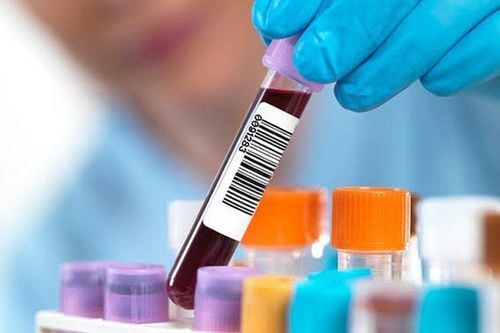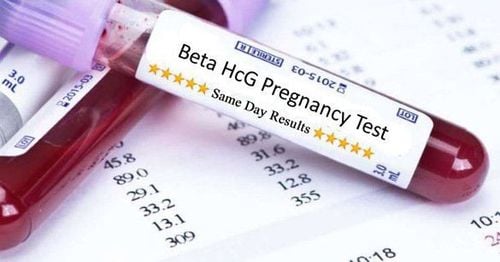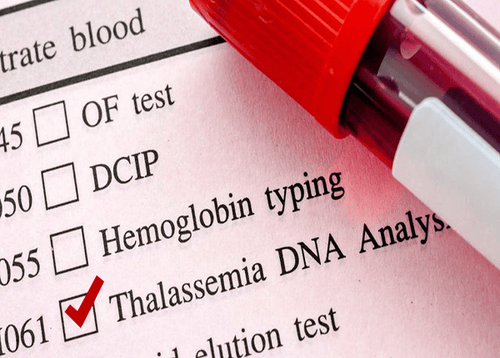This is an automatically translated article.
Ammonia is a waste product and is formed mainly by nitrogen degradation in the liver through the urea cycle and also from the digestion of blood appearing in the gastrointestinal tract.1. What is an ammonia test?
This is a test to measure the amount of ammonia in the blood. Ammonia is a compound produced by intestinal bacteria and the body's cells when protein digestion takes place.
Normally, NH3 is a waste product that is transported to the liver, then converted into glutamine and urea. Next, urea moves to the kidneys and is excreted in the urine. So, if the urea cycle is not completed to metabolize ammonia, ammonia will accumulate in the blood, crossing the blood/brain barrier. Some other sources of ammonia are the kidneys and muscles.

NH3 được vận chuyển đến gan
2. When is the blood ammonia NH3 biochemical test indicated?
Patients will be ordered by doctors to do this biochemical test when needing to diagnose portal encephalopathy, or hepatic pre-coma, hepatic coma encountered in the final stages of liver failure, cirrhosis , Reye 's syndrome , acute hepatocellular necrosis .
For the diagnosis of elevated blood NH3 levels in children may be indicative of enzymatic pathologies, which occur due to hereditary deficiency of enzymeopathy, belonging to the cycle of urea metabolism.
For pediatric patients who show symptoms such as lethargy, or unexplained vomiting, a biochemical test of ammonia NH3 in the blood is also indicated, this may be a manifestation of encephalopathy and in neonates with signs of encephalopathy. signs of a progressive neurological condition of unknown etiology.
3. What is the meaning of ammonia test index NH3?
The normal value of the ammonia test index is:For adults: 15 – 45g/dL or 11 – 32 mol/L. For children: 40 – 80g/dL or 28 – 57 mol/L. For infants: 90 – 150g/dL or 64 – 1072 mol/L.

Xét nghiệm sinh hóa amoniac NH3 trong máu
For infants, abnormal blood NH3 levels can be related to the urea cycle, most likely due to enzyme deficiency or genetic defects in young children, in addition, it can also be due to thalassemia infant blood. Usually, a brief, moderate increase in ammonia levels in the blood is quite common in newborns.
Children and adolescents can develop Reye's syndrome due to a decreased amount of Glucose and an increased level of ammonia in the blood. If the test results show elevated levels, it may also help diagnose a previously undiagnosed urea cycle enzyme defect.
For adults and children, elevated levels of ammonia in the blood can also be a sign of kidney or liver failure.
In addition, a normal blood ammonia level does not rule out hepatic encephalopathy. Other waste products in the body may have contributed to altered mental and cognitive functions, and ammonia levels in the brain may have been higher than they were in the blood. This can also become a major obstacle to the correlation between symptoms and the level of ammonia in the patient's blood.
Finally, a drop in blood ammonia levels can be caused by some types of hypertension, like blood pressure that becomes unexplained high or high blood pressure that comes on suddenly and quickly.

Xét nghiệm amoniac NH3 được thực hiện tại cơ sở y tế uy tín
4. What are the benefits of a quantitative blood ammonia test?
The biochemical test of ammonia NH3 in the blood plays an important role in the diagnosis of portal encephalopathy, Reye's syndrome, which is common in children and adolescents, and some urea cycle enzyme diseases.
In addition, this test can also be used to determine if liver dysfunction is the cause of some of the symptoms: excessive sleep, confusion, coma. Because there are many other clinical conditions that are similar to hepatic coma or are aggravated in cirrhosis (such as gastrointestinal bleeding, use of certain drugs such as analgesics, diuretics, opiates, .. .).
This test is also used by many doctors to monitor the progress and health status of patients during treatment for liver disease (eg cirrhosis).
Vinmec International General Hospital is one of the hospitals that not only ensures professional quality with a team of leading medical doctors, modern equipment and technology, but also stands out for its examination and consultation services. comprehensive and professional medical consultation and treatment; civilized, polite, safe and sterile medical examination and treatment space. Customers when choosing to perform tests here can be completely assured of the accuracy of test results.
Customers can directly go to Vinmec Health system nationwide to visit or contact the hotline here for support.
MORE:
Cases needing blood urea test Learn about amino acid Leucine Dangerous complications of cirrhosis of the liver













